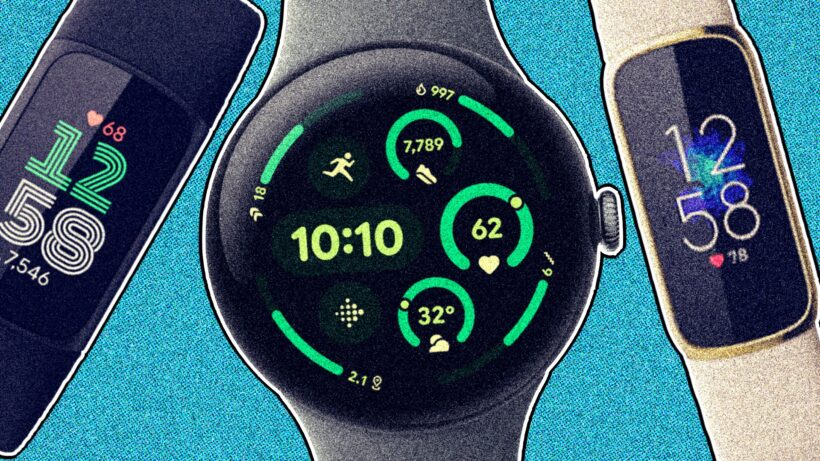If you have a Fitbit tracker or smartwatch, you may soon get more than just step counts and sleep reports. Google is introducing a major redesign of the Fitbit app. The new version adds an AI-powered health coach built on Google’s Gemini artificial intelligence. With this upgrade, Fitbit wants to become a true wellness partner, not just a tracker on your wrist.
This update will launch for Premium users in the U.S. first. Over time it will roll out to more devices and markets. Let’s break down what’s changing, how it works, and why it matters.
What’s new in the Fitbit app
The new app brings a fresh design and a new way to interact with your health data. The main tabs are now: Today, Fitness, Sleep, and Health. Instead of focusing only on daily numbers, the app emphasizes weekly trends to give a clearer view of your progress.
The big star of the update is the “Coach” feature. You tap “Ask Coach” or speak to it, and the AI reviews your data, goals, workouts, sleep, and recovery. You might ask: “What workout should I do in 30 minutes?” or “Why did I sleep worse last night?” The coach uses your data to respond and give recommendations.
Boarding is simple. You answer a few questions about your goals, equipment, injuries, and how much time you have. Then the coach builds a plan that adapts as your weeks change. If you travel, miss a workout, or change your schedule, the AI adjusts.
Why this matters
Distinguishing between trackers and real coaching is key. Fitbit used to show raw data and charts. Now it proposes to interpret them and guide you. That gap between showing and guiding is where AI coaching lives.
With Google behind it, Fitbit can integrate more than just hardware. It can use Google’s ecosystem, AI voice assistant, and software infrastructure. That means your watch, phone, and app can work together to deliver meaningful feedback.
The move also shifts the tracker from “look at this data” to “let’s do something with the data.” Daily step counts are okay, but a coach that helps you make sense of them is better. It changes how ordinary people might use a fitness tracker.
How the coach works
Once you opt in, the process begins with a chat—text or voice. You tell the coach your goal, like “I want to run a 5 K” or “I want to sleep better.” You note any injuries or what equipment you have. The coach then picks a training plan with exercises, timers, and adjustments.
Every week the coach tracks your readiness, recovery, and training load. It will ask questions and suggest tweaks. If you had a bad sleep week, it may reduce training intensity and give recovery tips. If you’re doing well, it might push you a little harder.
All this is powered by Gemini AI but based on your Fitbit data. The coach can reference stats like VO2 max, sleep stages, calories, and more. It uses that info to make suggestions that feel personal.
Who can use it and when
At launch, the update is available in the U.S. for users 18 and older who subscribe to Fitbit Premium. You’ll need a compatible tracker, Pixel Watch, or supported Fitbit device. The preview lets users switch between the old app and new version, so you won’t lose your data or feel locked in.
Google says more devices and markets will come later. Nutrition tracking and cycle tracking features are still on the roadmap, so this is just Step One.
The risks and concerns
Any time an AI gives health or fitness advice, you must ask: Can I trust it? Fitbit says the coaching tool was developed with health experts. It also insists your data won’t be used for Google Ads. That is good.
But the coaching must be accurate and safe. If the AI gives bad advice, you could get injured or misled. You should still consult a health professional for serious concerns.
Privacy and data matter, too. Having your health metrics, sleep data, and daily habits analysed by a powerful AI requires trust. Fitbit users will want to know how their data is stored, used, and protected.
Why this is a turning point
Fitness trackers have been around for more than a decade. Many can count steps, measure heart rate, and track sleep. But few offer a meaningful way to turn all that info into action. Fitbit is trying to fill that gap with its new app.
If the coach proves useful, it could change how we think about wellness tech. Instead of hardware and data, the story becomes support and guidance. Google wants Fitbit to be your wellness partner, not equipment you wear.
The Bottom Line
Fitbit’s biggest app revamp sets the stage for a new kind of fitness experience. With its AI coach powered by Google’s Gemini, the tracker evolves into a personal assistant that watches your habits and helps you grow.
If you have a compatible device and use Fitbit Premium, you may soon get access. For everyone else, this gives a window into where fitness tech is headed.
It may still be early days, and the tool will only get better. But the idea is clear: your smartwatch might not just track you, it might train you.
Also Read:Google’s New Gemini Feature Can Now Schedule Your Meetings Automatically

